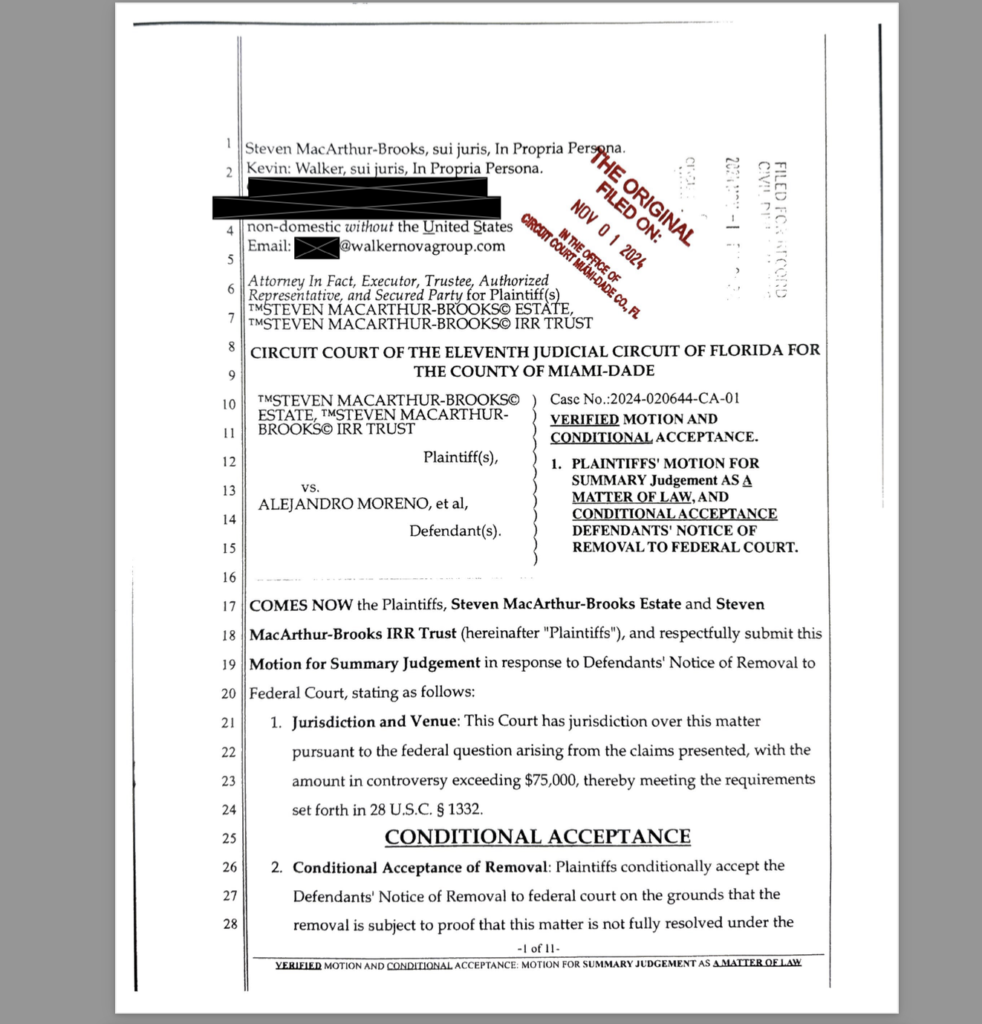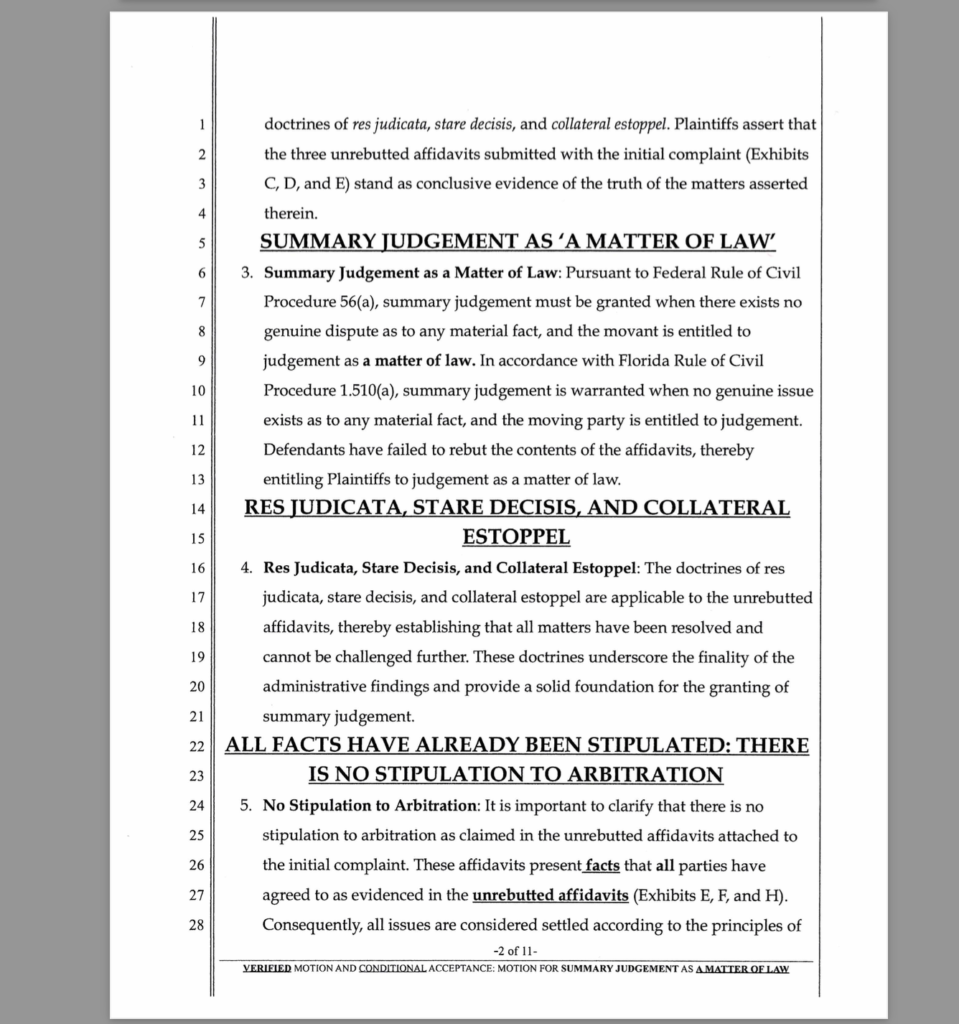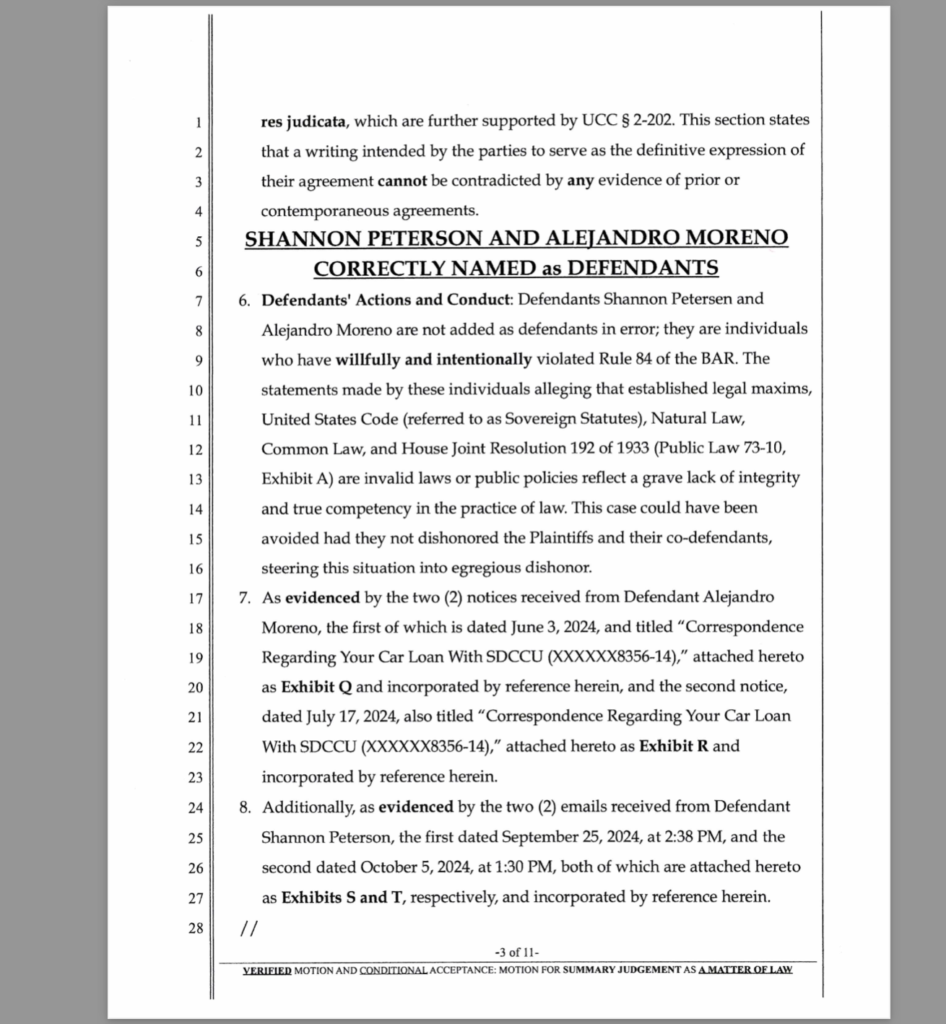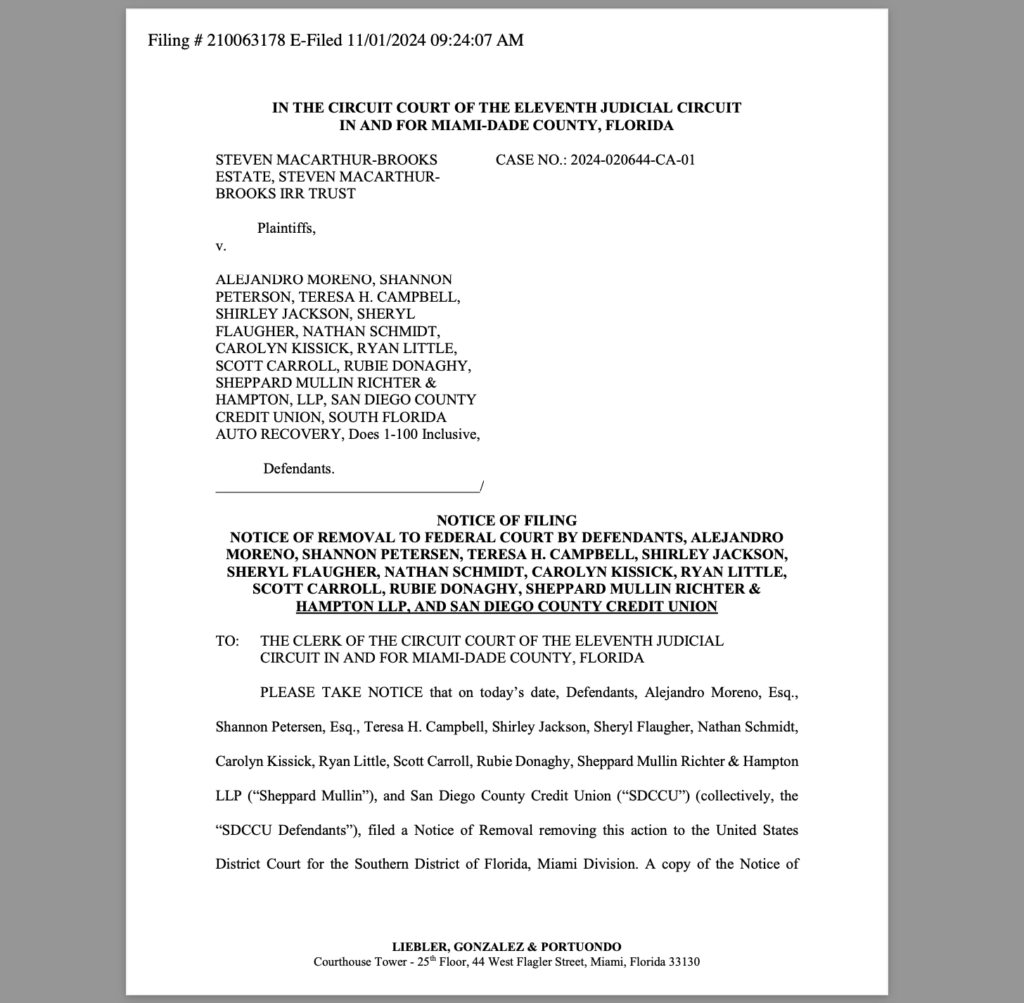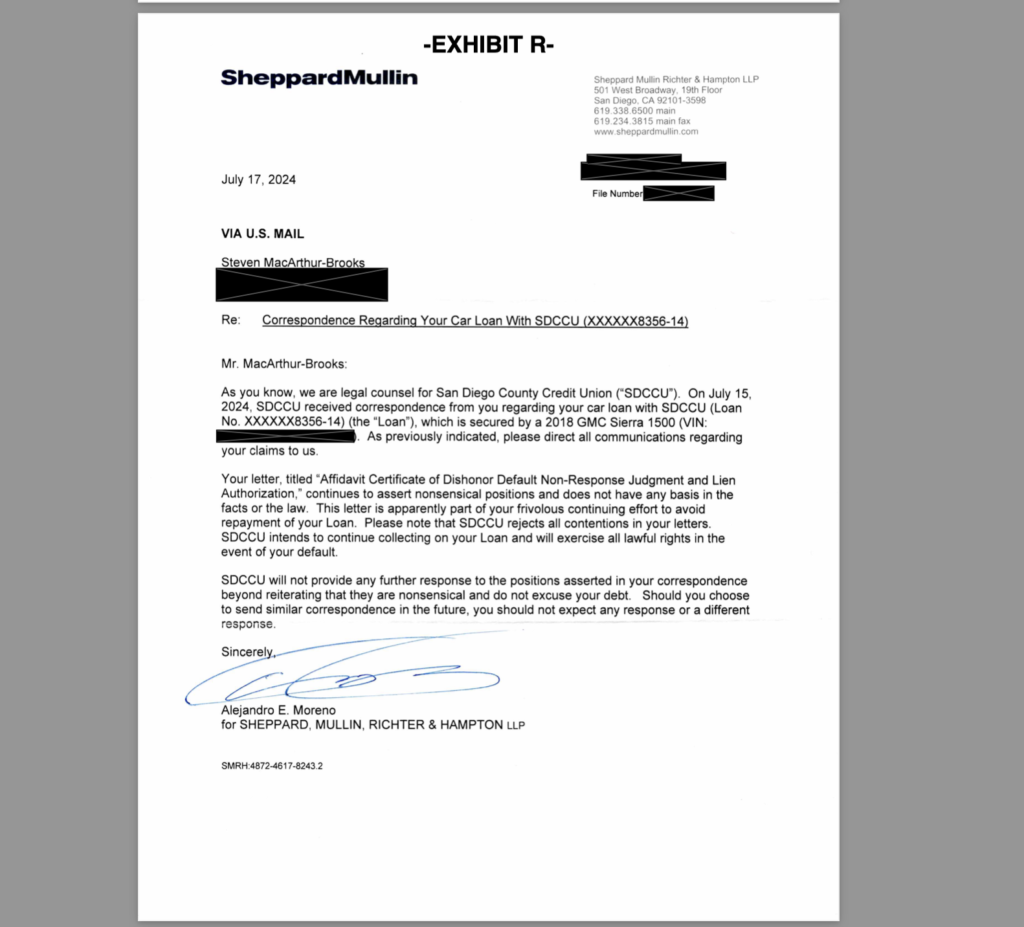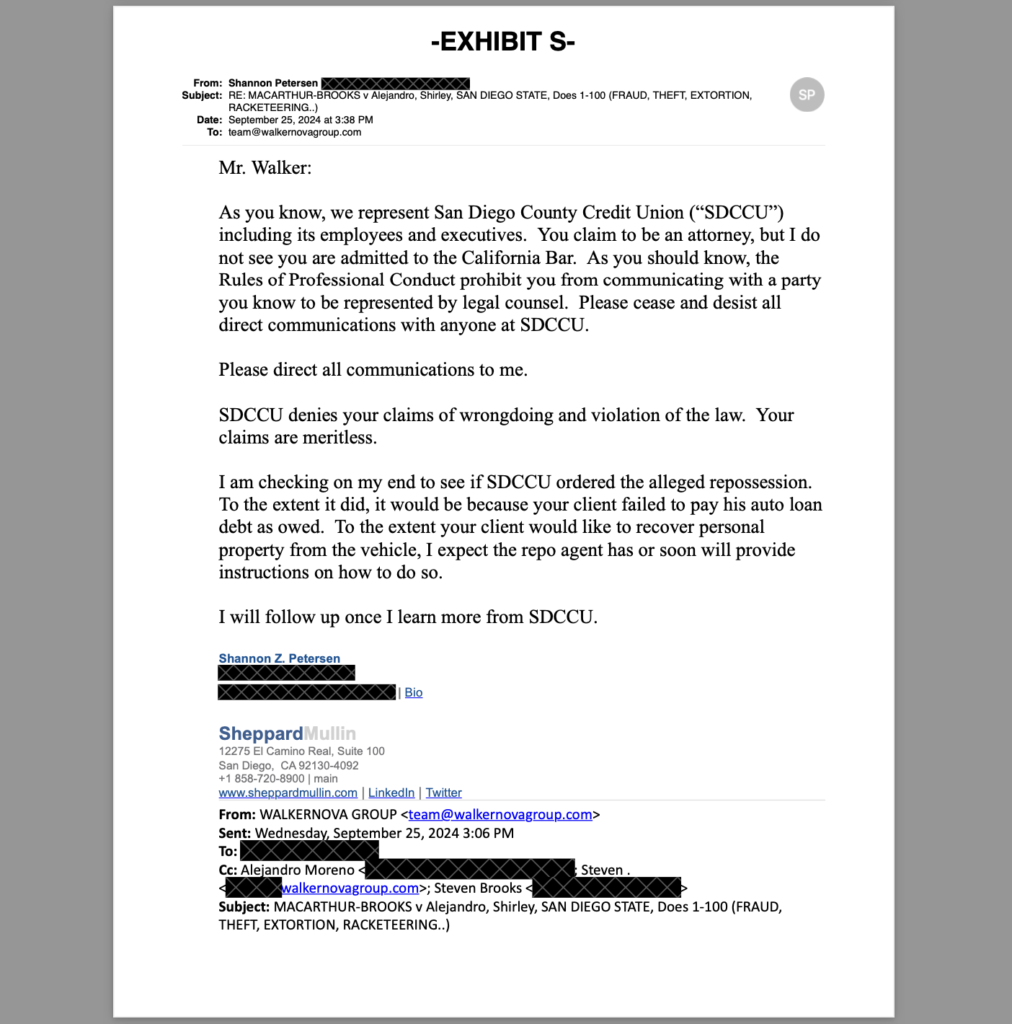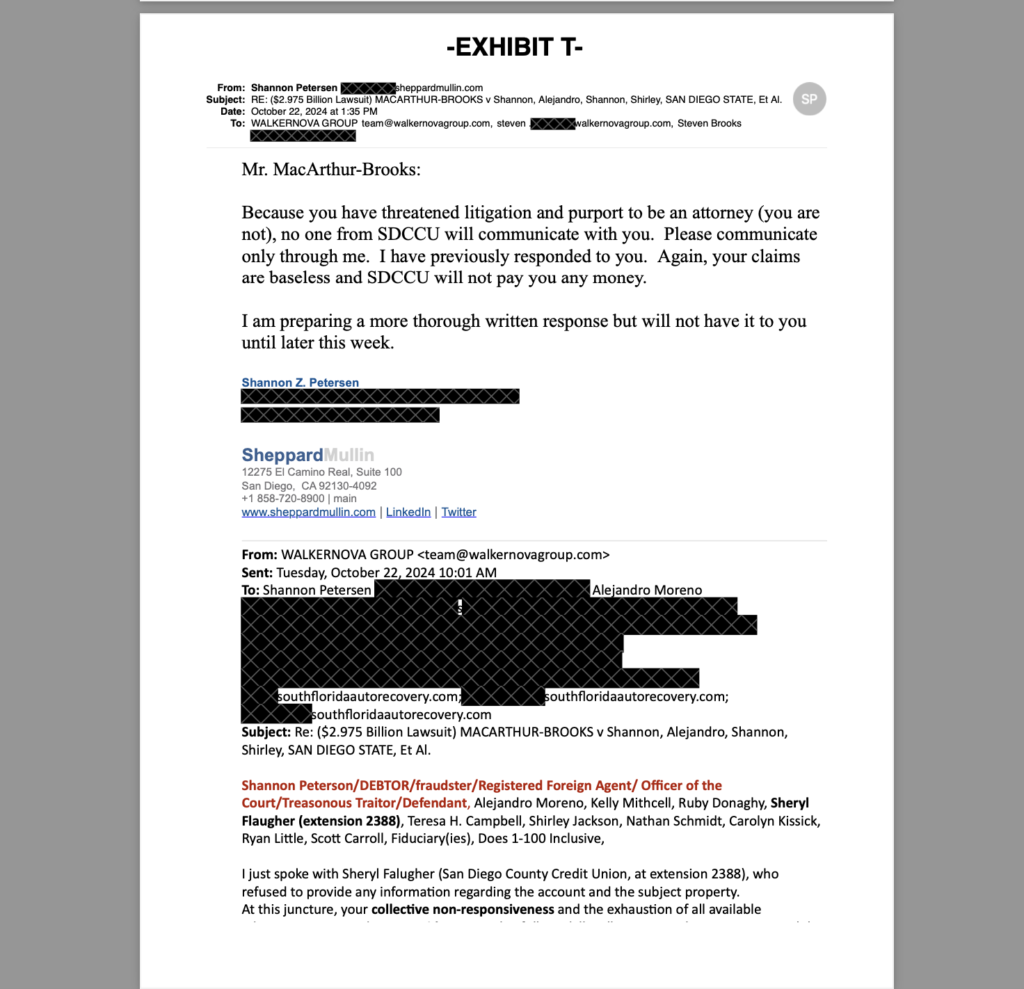
SDCCU and SHEPPARD MULLIN Hit with $2.975 Billion Motion/Demand for Summary Judgement as “a matter of law”
In a noteworthy legal development, the defendants—San Diego County Credit Union, Sheppard Mullin, and others—have submitted a Notice of Removal to federal court, which appears to contain language intended to introduce misleading stipulations into the case. In response, Attorney in Fact Kevin L. Walker and Steven MacArthur-Brooks, representing the plaintiffs, the Estate of STEVEN MACARTHUR-BROOKS and the STEVEN MACARTHUR-BROOKS IRR Trust, filed a Verified Motion for Summary Judgment and Conditional Acceptance. This motion asserts that immediate summary judgment is necessary due to the firm, unrebutted verified commercial affidavits presented and the binding principles of offer, acceptance, and contract law, established as a matter of law.
(Visited 96,569 times, 1 visits today)

